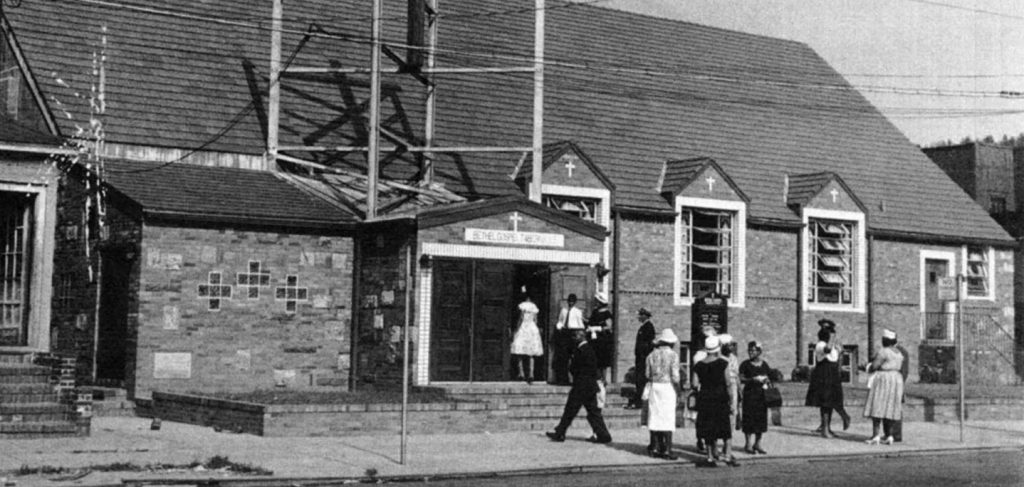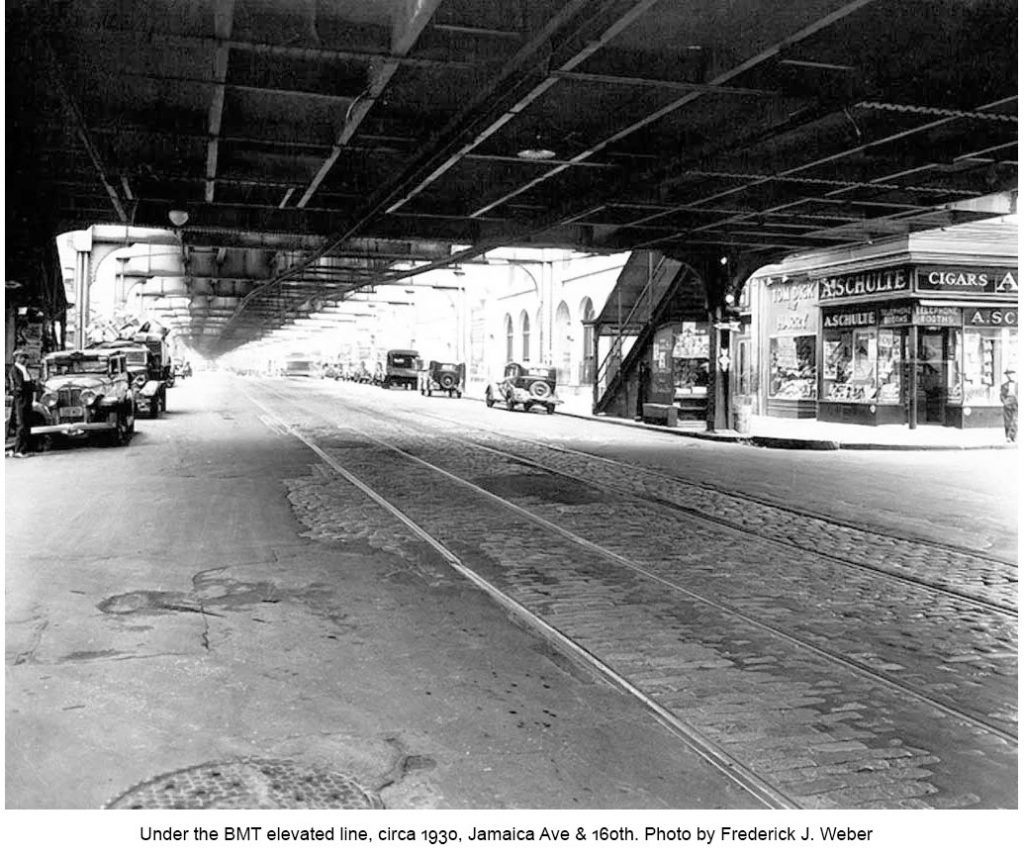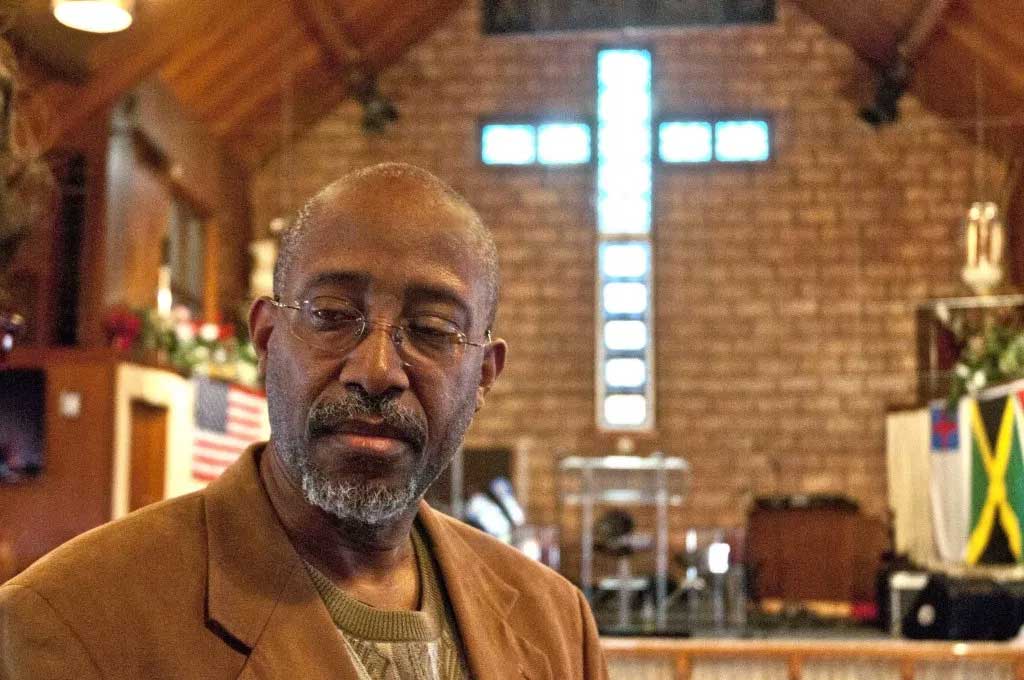
Born on September 23rd, 1900, the late Caesar, Sr. was from the capitol city Castries of the island St. Lucia. As a 16 year old, he left to work for the Merchant Marines out of New York City supplying goods for soldiers during World War I. When the war ended, he decided to stay in New York.
Like many other African Americans, Caesar Sr. was attracted to Harlem. Because of a real estate bust in Harlem before World War I, real estate companies opened up homes to African Americans. Consequently, by 1922 the African American center of New York City had shifted from the Tenderloin on the West Side to Harlem. There came alive a cultural flowering known as the Harlem Renaissance. Harlem became a hot place to be.
In August 1925 a writer for The Saturday Evening Post reported, “Harlem…draws immigrants from every country in the world that has colored population…Ambition and talented colored youth on every continent look forward to reaching Harlem. It is the Mecca for all those who seek Opportunity with a capital O.” By the 1930s more than 20% of Harlem’s African Americans were from the West Indies.
About 1920, Caesar Sr. and a friend were walking down the street in Harlem where they heard Sister Harold preaching at street services sponsored by the Harlem Pentecostal Assembly which had been founded three years earlier. An aspect of the Harlem Renaissance was a large growth of religious groups and interests. Chicagoan PK Thomas A. Dorsey injected into Harlem tastes a gospel music that collaborated well with new hip urban sounds. Other PKs like Fats Waller utilized their skills gathered from playing in church to pioneer jazz and blues. His father was an evangelist at Abyssinian Baptist Church. Duke Ellington created his “Sacred Suites” as part of his claim that jazz was as high culture as classical music and as spiritual as gospel. PK Nora Zeal Hurston pioneered folklore of African American life, including religious beliefs (about which she had become skeptical).
By 1922 most of the established African American churches had moved to Harlem from the West Side. There were also numerous religious start-ups. James Weldon Johnson claimed that there were some 160 African American churches in Harlem in 1930, including about 100 storefronts. Some were outlandish like Father Divine’s well-funded outfit that featured baptism by fire hoses; others were more in line with classical Christian practices. However, almost all of the new start-ups were more hot and fervent. By 1930 the Greater New York Federation of Churches called Harlem “the greatest Protestant center in New York City.”
The friends listened to the evangelist’s message and that day, “surrendered their lives to the Lord.” Caesar Sr. started to attend Harlem Pentecostal (today in Harlem has picked up the moniker). Under the tutelage of Bishop Pickering he worked his way up from member to Sunday school teacher to deacon to street evangelist, and, finally, to elder. After a few years experience of helping the senior pastor, Caesar Sr. felt it was time to start his own church.
He saw that African Americans were beginning to move out because the density of Harlem was overwhelming. In 1937 A.J. Liebling wrote for The New Yorker, “For the number of human beings to the cubic foot, the block in Harlem is without a serious rival.” Looking around for available housing (i.e. empty and open to African Americans), residents discovered Jamaica, Queens.

The onset of the Great Depression in 1929 had brought the real estate boom in Jamaica, Queens crashing down. Further aggravating the housing market, the completion of the Grand Central Parkway out to Nassau County, Long Island had the effect of moving people out of Jamaica. A lot of houses became available for a cheap price. African Americans on the hard streets of Harlem saw rows of houses on tree-lined streets waiting for them. Transportation out to eastern Queens was also improving. Starting in 1918, people living in Harlem without cars could use the “el” (elevated line) along Jamaica Avenue as their moving van. In 1937 the Independent subway line opened in Jamaica.
But it was still “very country,” Caesar Jr. recalls from his parents’ descriptions. There were pasture lands, farms and dairies. Moving to Jamaica was pioneering on the edge of the urban frontier.
So, in the early 1930s, Caesar Sr. moved to Jamaica, Queens and started cottage prayer meetings in southeast Queens. Several people who were disenchanted with their churches also came to check out the newcomer. Bethel Gospel Mission of South Road was incorporated in August 22nd, 1932. Quite a few other churches were also founded in Jamaica in this period, including St. Paul Baptist Church in 1920, Brook Memorial Methodist Episcopal Church in 1924, Westminster Presbyterian Church in 1925, Christ Pentecostal Tabernacle in 1926, Holy Trinity Lutheran Church in 1927, Merrick Park Baptist Church in 1928, Church of Saint James the Less in 1930, St. Benedict the Moor in 1932, and Zion of God in Christ Gospel Church in 1939.
After nine years, the church had gathered enough steam to buy its present site in 1941 and changed its name to Bethel Gospel Tabernacle. Five years later, Caesar, Sr. formed the first Bible institute in Jamaica, Queens, which trained hundreds of people to start and lead their own churches. In 1948 he reached out to a mass audience with the radio program “Full Gospel Hour” which at times broadcast on 1010 WINS and continues today. The attendance at the church’s evangelistic meetings was sometimes so large that it set up a “Big Green Gospel Tent,” which became locally famous for healing and prayer services.
Caesar Sr.’s future wife, Gertrude Brown, was pastoring a church in Ohio in the early 1940s. Concerned about her nephew’s single state, his aunt introduced the two. Joined in marriage in 1944, their partnership lasted 33 years, until Gertrude’s passing in 1978. The couple had two children, Caesar Jr. and Beverly. Caesar Jr. was born in Jamaica, Queens and has lived his entire life there.
As he recalls his father, Caesar Jr. looks away and his expression assumes a countenance of gratitude. “My father made a very powerful contribution,” the son says. “He did church in a different way.”
“His first congregation gave him a chance to be different,” Bishop Roderick Jr. observed. “He wanted a balanced ministry.” The words that Caesar Jr. uses to describe his father’s ministry are consistent, solid, balanced, and Biblical.
In Caesar Sr.’s services the white reporters of the city newspapers didn’t find any of the titillating wildness by which they could poke fun at African American religion.
“What’s unique about my father is that he ministered for 60 years and his voice was the same. It was not compromised by hollering or screaming. He was a very articulate expositor. He taught the importance of scriptures and ministry, and clear articulation of truth.” Within the Caesar family, “discipline of good speech” was emphasized. The father also emphasized good relations with other ethnic groups.
“He prayed that the Lord would give him a diverse congregation that reflects the population. His target audience was everybody.” A Harlem contemporary of Roderick Sr., Duke Ellington, recalled likewise how his mother told him about God, and “I am sure my mother felt that God took some rich black soil, some red clay, and some white sand, and mixed them all together to make the first man, so that forever after no man would feel he was better than another.” This large notion of God’s cross-ethnic, cross-racial love also trickled down to Caesar Jr. He is very conscious of the ethnic diversity of his ministry, proudly noting that “the flags in front of the church today represent the countries we serve on a regular basis.”
“There were no St. Lucian members,” the bishop recalls. Even now, the congregation of Bethel Tabernacle has only 3 members hailing from St. Lucia.
The late Roderick Sr. also encouraged his children to treat people generously; he taught this virtue through leading by example. “My father was a very sacrificial, giving individual,” said Caesar Jr. “I told myself that was one of the attributes I would not possess because he was always giving people whatever he had.” The fact that the son saw his spending money being dolloped out into strangers’ hands made a big impression about the importance of reaching out to people not like oneself. However, the son did wonder if his father was a little too trusting.
“I would see my father literally give his last dollar in his pocket. Sometimes I knew people were taking advantage of him.” But the son suspects, “I think he knew it too. But he did what he did for the Lord, and he didn’t look for any recompense or return,” My sister and I “were not wealthy, but we never went hungry and had to worry about a roof over our heads. The Lord provided for father as he provided for the needs of other people.”
Generous with his money, Caesar Sr. was more careful with the management of his time because of its importance in exemplifying a disciplined character. He taught this ethic to his son with an example from radio broadcasting. He noted that the Full Gospel Hour was really a half an hour radio program. Caesar Sr. used to say, “You’re paying for 30 minutes. If you have a 40 minute broadcast they’ll never get to hear the end of your sermon. No matter how good you are, the station will never let you keep going because someone else owns the time after you. So, learn to work with time.”

The importance of time is taken seriously by Caesar Jr., “One of the things that distinguishes Bethel very well is that we are time-conscious people. We begin on time and we end on time. We have structure and discipline when we worship.”
Caesar Sr.’s example of balanced & clear articulation, openness, generosity, & time awareness provided a moral soil for the development of his son. Other intangible traits that the son mentions when talking about his dad are authenticity, commitment, and priorities. “My father was very genuine in his ministry, thoroughly committed.” The father did not let the ministry eclipse his concern for his family.
“He was committed in his ministry but he did not forsake his family in the process, he was balanced,” said Caesar Jr. A sense of familial support and love was consistent.
However, like most teenagers, Caesar Jr. wanted to strike out on his own. In a successful church it can seem that everyone wants a PK to be a reincarnation of the father. “My rebellion was to be myself rather than someone else. They say you’re supposed to do this and do that because you’re a preacher’s kid.” He leans over conspiratorially when he admits, “I had an alter-ego with cars: drag-racing. At nights, I would leave church to drag race. That kept me sane.”
However, when it was time for Roderick Jr. to decide on his life path, he received a calling to ministry in his mid-teens. Still, he struggled with the idea for years after. “I knew I wanted to stay. I never had a desire to not stay in church,” reflected Caesar Jr. But a desire to stay in church is different from a desire to lead a church.
He already had the experience being a PK which meant losing his fun money to the poor. He also saw that his father was available to church members 24 hours a day, 7 days a week. A life of 9 to 5, Monday through Friday and weekends off looked much easier.
“My father never pushed me to go into the ministry. He said to me initially, ‘I would love for you to follow me in ministry. But if the Lord does not lead you to do so, get a good education and a good job. I’m not going to hand the ministry over to you because you’re my son; it would be because God has instructed me to do to.’ So I grew up knowing it was not a given that I would be a pastor,” said Caesar Jr. Still, as he sorted through professional options, his heart and mind converged onto ministry. He “got the call.”
Afterwards, Caesar, Jr. apprenticed for nine years as the pastor of Calvary Full Gospel, a Bethel church plant in Woodside, Queens. In 1978 he became an assistant to his father at the mother church and in 1984 the senior pastor. In 1994 he was made bishop of the Bethel Gospel Tabernacle Fellowship International, which includes three churches in Haiti.
As he talks, Caesar Jr.’s joy at his choice gathers strength like a sun on a spring day. “The beautiful thing doing what you enjoy is that you never go to work. I would do what I do today for free, if free paid my bills. I have to work to earn, but I absolutely love what I do. I have a passion for it, I love to serve people.”
Caesar Jr. has honed Bethel into a “teaching-training ministry.” Bethel “gives people the opportunity to find their purpose in kingdom work and God service,” he says. The Bible Institute, which has now been open for 63 years straight, takes about 200 students on a journey to their callings each year. Caesar Jr. keeps true to his Dad’s openness and balanced approach. “We don’t just teach Pentecostals, we teach people from all different denominations. We’re not so much sectarian as we are theological,” he explains.
Caesar Jr. has become more involved in international ministry. He says he is “working with young ministers in the Third World, primarily South Africa, Nigeria, Uganda, Kenya, and the Caribbean, helping to empower them so that they can continue to do their work.” He leaves money in these places to help water with economic resources the spiritual training that he gives.
His ministry also has a 450 acre camp near Albany, New York for church retreats and a radio outreach program for the community. For the neighborhood, the church provides weekly feedings and a counseling ministry that deals with emotional and domestic issues. His wife Associate Pastor Beverly Caesar, Jr. directs an arts ministry.
Caesar Jr. and his wife are the parents of four grown children. Soon to be retired, he seeks to travel more. He said, “Travel is the best education on the planet, I would go everywhere.”
Recently, Caesar Jr.’s son, Roderick Caesar III, received his calling and decided to follow his grandfather and father’s footsteps by becoming the leader of Bethel, once his father retires. “It is just a matter of timing,” said Caesar Jr. Caesar III started missionary work in September of 2011. He was ordained in May 2016 and is director of Imago Dei, the young adult ministry at Bethel.
I asked him how his son’s ministry will differ from his own ministry. He answered, “Message wise, it will be consistent. Method wise, it will be different because it will be a different generation.” The late Caesar Sr. provided an environment for his son that was both gentle with love and firm with discipline. This reflects in Bishop Roderick’s demeanor, and his success in leading Bethel Gospel Tabernacle.
